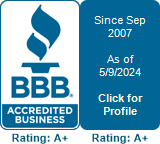In a Partnership? What You Need to Know About Basis
- By Admin
- •
- 16 Mar, 2020
- •

If you are a partner in a partnership, you will need to understand a few accounting concepts in order to protect your financial interests. One accounting idea that many people are unfamiliar with is called basis. To help you understand basis, here are a few key things to know.
The Basics of Basis
At its core, basis is the accounting terminology for the amount of money a person or company spends on the purchase or improvement of an asset. If you buy a vehicle, the purchase price is the biggest element of your basis in it.
However, for business purposes, you might also add certain costs like sales tax on the purchase and freight costs to get it from the manufacturer. Together, these form the basis of the vehicle, which would represent your cost if you contribute it to the partnership. This is of great importance because the amount of basis determines the profit you will potentially pay taxes on or the loss you may deduct.
Inside Basis vs. Outside Basis
When you contribute an asset - whether it is cash, a building, a piece of equipment, a vehicle, inventory, or something else - your basis in that individual item is known as the inside basis. This basis is assigned to each asset and exists inside your overall basis in the company. On the other hand, the outside basis is your overall contribution to the partnership.
For example, if you contribute that vehicle (for which you paid $10,000) as well as $10,000 cash, your outside basis in the partnership is $20,000. This is how much you stand to lose if the business fails, and it is generally the limit of how much you can deduct if there is a net loss at the end of the year. However, the individual $10,000 basis in each individual asset would be used to calculate certain losses or gains later on.
Partner and Partnership Basis
In addition to inside and outside bases, each asset may also have two different bases for the partner and the partnership.
If you contribute that vehicle, for instance, the partnership's basis may be the fair market value of the vehicle. But your outside basis (stake in the business) is based on your own basis (cost) of the vehicle. So, if the vehicle is worth $15,000 when your investment is $10,000, there will be two different bases to calculate.
Adjustments to Basis
Basis is not a fixed number. It can be adjusted up or down based on many factors. If you make capital improvements to the asset - something that extends its useful life or boosts its financial value - your personal basis would be increased.
In addition, your partnership basis is affected by profit, loss, and partnership transactions. If there is an annual net loss for the business, it will generally be split up per the partnership agreements and assigned to the relevant owners. If you contribute additional money or property to the partnership, your outside basis would increase. And if you take a distribution, this may decrease your stake in the business.
Finding Help
Both the partnership and each individual partner should track the various bases for reporting purposes. The partnership would need to know, for instance, how to record distributions of assets to the partners.
But the bigger responsibility is on the partners, since they are more directly affected by basis. Each basis and adjustment to basis will either increase or decrease your taxable income at some point, so you should have this information available when you need it.
Since basis is a difficult concept to understand and utilize, consult with an experienced accounting service. Quality Bookkeeping Services Inc can guide you through the tracking of your relevant bases as well as how to use them on your books or taxes. Call today to make an appointment and learn more.










